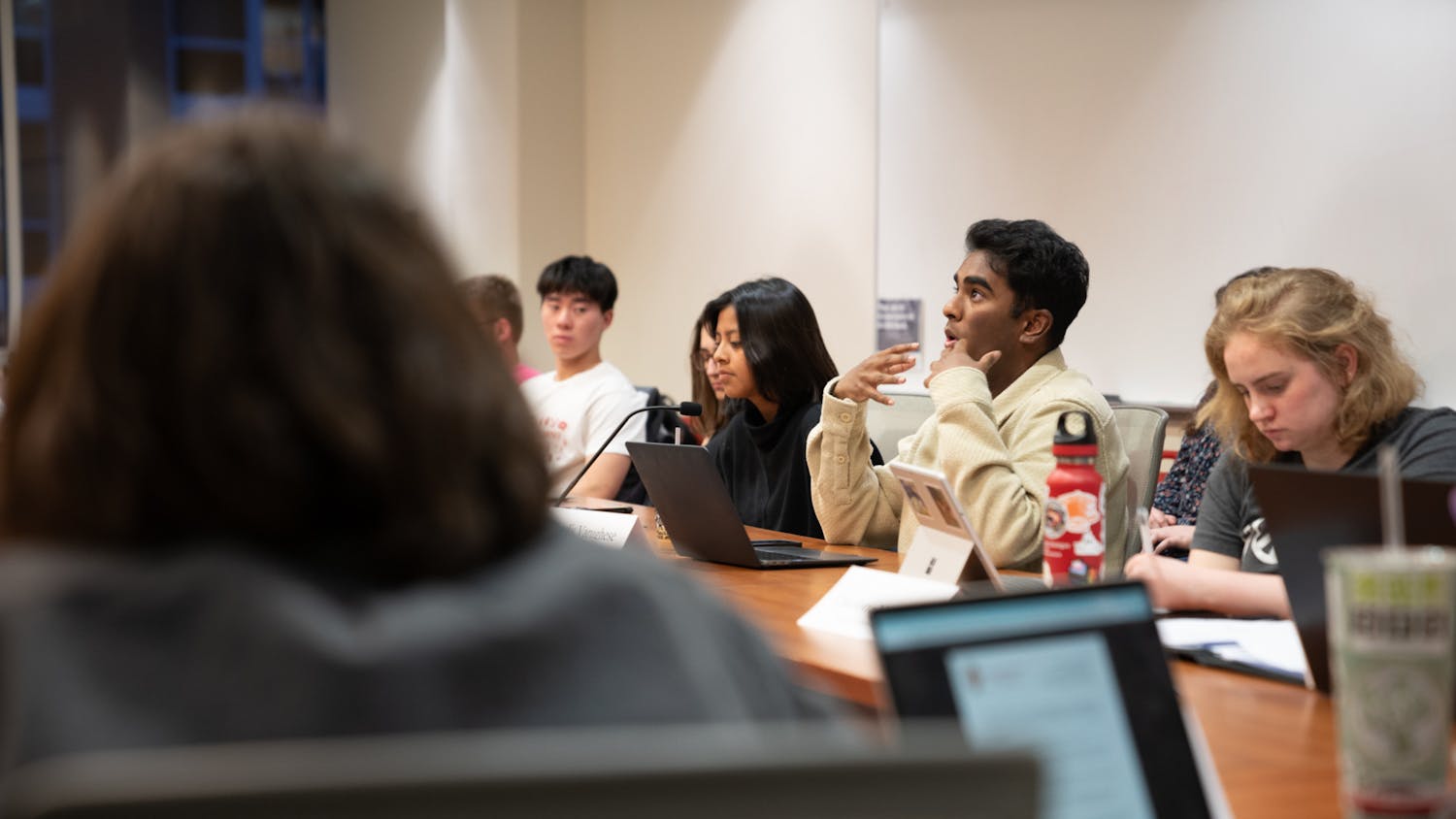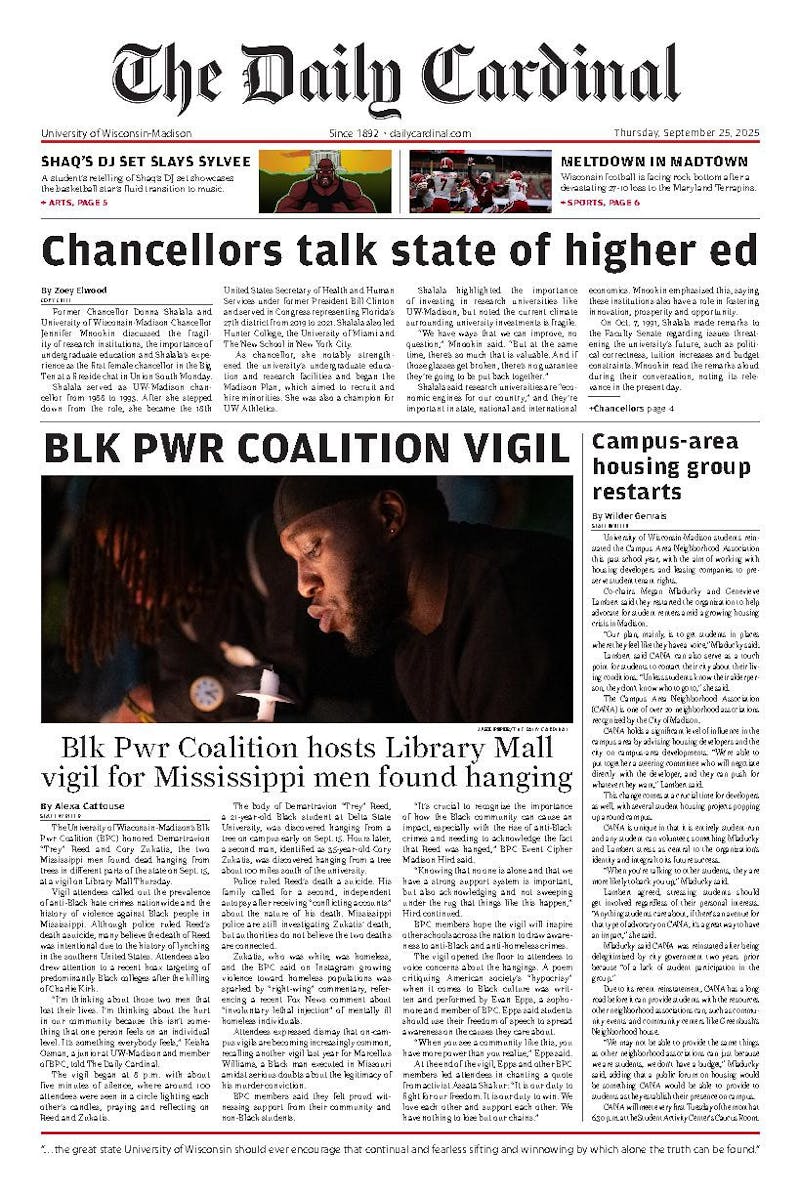Fifty-two undergraduate engineers took part in this year's Innovation Days, where they vied for prizes that judged their creativity, prototype design, presentation and design notebooks. The diverse array of inventions included an Antarctic ice drill, a mobile microcrane to aid in building log cabins and a remote-controlled window washer.
According to Matthew Younkle, an Innovation Days alum, president of both Y Innovation, LLC, and Laminar Technologies, LLC and sponsor of the presentation award, 'It's a very competitive batch of contestants this year'the discussion among the judges was very lively. There is a lot of talent and the presentations have gotten better over the last few years, making it that much more difficult to judge.'
Angie Franzke, a UW-Madison senior in engineering mechanics and astronautics, won a total of $12,500 after placing first in both the Schoofs Prize for Creativity and the Tong Prototype Prize for the Concentrated Solar Collector.
The device collects solar energy in a thin, flat 'Fresnel' lens, which focuses a narrow beam of light onto a copper block. According to Franzke, this energy can heat water or create steam to run a turbine, generating electricity.
William Gregory Knowles, president of the OmniPresent Community-Based Response Network and recent UW-Madison graduate, won $7,000 when he took second place in the Schoofs Prize for his unique solution to reduce false alarms in security systems.
Knowles started OmniPresent when he was a 19-year-old undergrad and has a number of clients on campus. He said that one of the biggest problems facing the security industry is frequent false alarms.
According to Knowles, '99 percent of alarms are false.'
His system could be likened to a neighborhood watch for the Wikipedia set'a community of OmniPresent's users have access to alarm data and security camera videos online.
The customers are encouraged to verify whether an alarm is valid with incentives like credit that can go towards the purchase of more cameras or the payment of their next bill. Since OmniPresent charges on a per-alarm basis, everybody involved has a vested interest in preventing false alarms.
According to Knowles, his business model is more cost-effective than the monthly monitoring fees that large security companies charge.
'As it turns out, the people who need these alarm systems the most can afford it the least,' Knowles said. 'The only people using them are the very rich and wealthy who live in neighborhoods that have very low crime rates to start with. ... We're trying to change the whole model and make it affordable for everyone.'
The $4,000 third-place Schoofs Prize and second-place Tong Prototype Prize went to the self-leveling wheelchair, designed by Garret Fitzpatrick, Jon Oiler, Angie Franzke (contestants are allowed to submit multiple entries), Peter Kohlhepp and Greg Hoell. According to a College of Engineering statement, the tray is 'a stowable working surface for wheelchairs that self-levels, even when the wheelchair is tilted or reclined up to a 45-degree angle.'
In a tie for fourth place, awards were presented to the Universal Defibrillator Adapter, designed by Brad Hotle, Josh Rocholl, Tim Riley, Brad Schultz and Shawn Enright, and the Hand-Righter, created by Emily Prewett, Jesse Gudmundson, Brian Shanley and Brian Boeckmann.
The former addresses the lack of standardization between the manufacturers of defibrillators and defibrillator electrode pads. According to Enright, 'pads from one defibrillator manufacturer cannot be used with another manufacturer's defibrillators.'
When a patient is in critical condition after a heart attack, every second counts'switching pads when moving from the ambulance to the hospital is dangerous. The Universal Defibrillator Adapter remedies this by allowing practically any brand of pad to work with any brand of defibrillator.
The Hand-Righter aids those with tremors, like Parkinson's or stroke victims, in gripping a pen or pencil and writing by hand.
Additional prizes for prototype design, presentation and design notebook quality were awarded to the Easy Quench, a hydration system that employs air pressure, the FlexiGobo/Light Target, products that help provide advanced dynamic lighting onstage, and the Biomass Shredder, a bicycle-powered invention that aids in the production of compost and has applications in Third World countries without a surplus of wood for fuel.
As the winner of the 1996 Schoofs Prize for the TurboTap'a keg tap attachment that eliminates excess foam head and pours beer four times faster than a normal tap'Younkle looked in hindsight at his experience with Innovation Days and how it influenced his career.
'For an engineer, this is a well-defined outlet to bring forward creativity and innovation,' Younkle said. 'It gives a lot of confidence to the participants, to me, in particular. ... Having gone through the process and standing up in front of a room full of people and presenting an idea is a difficult thing. ... Having the opportunity to do it as a student, I think, is invaluable and will serve these students very well the rest of their careers.'





